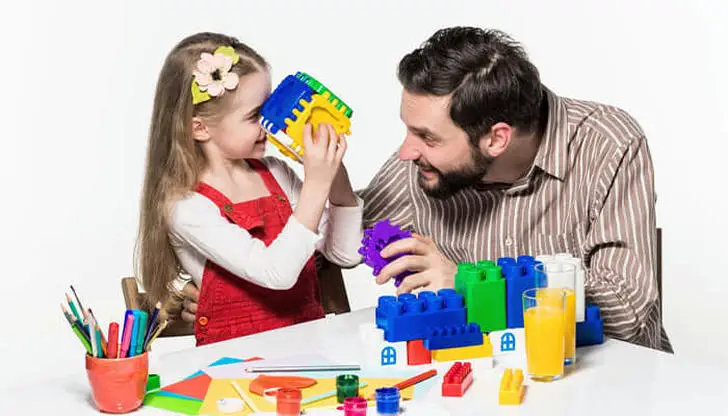8 Ways to Train Your Child’s Memory
Advertisement
Many parents believe that academic performance is directly proportional to IQ. In fact, they do not know that IQ never determines children’s grades, but learning methods. Good learning methods can get twofold result with half the effort.

Nowadays, more and more people have the problem of memory decline. Therefore, we should face up to this problem, and take measures, so as to exercise children’s memory. Here are 8 ways to train your child’s memory.
1. Discuss the details

Kathleen Kolyn, a psychology professor in Chicago said that "improving a child’s memory takes a long time as a parent." This process involves constantly asking questions or discussing past events in detail. For example, when discussing the last time you saw a circus with your child, you might ask, "What was your favorite show?" or "Did you think that clown was funny the second time he came out?" If your child can’t answer your question, maybe he can’t remember it, you might as well give him the answer. Next time, he’ll learn to remember some details.
2. Play memory games

Use cards to play games with your child. For example, show children pictures of objects and ask, "If we go on a picnic, which of these things should we take?" You and your child say one item in turn and slowly reveal all options.
3. Design prompt language

It can be very helpful for children to find memory tips. You can use body language or dance. This way, every time you make an action, the child will immediately remember. After a few repetitions, he will be able to recite them without your reminding.
4. Give positive hints

Anyone who has a good memory must have confidence in his memory. To build confidence, give your child positive hints that say, "Honey, this is easy. You can remember this!"
5. Segmented to recite

If the child needs to recite a large part in a drama, you might as well let the child take these words apart, first read these words in a small paragraph, and then recite them.
6. Develop child’s interest in learning

Adults often find it easy to remember things that interest them. Instead, force yourself to make an effort to remember something that doesn’t interest you. Five years old children tend not to be able to do this and have trouble remembering things that don’t interest them. So constantly stimulate the child’s interest in learning, he can diligently learn and memorize.
7. Practice everyday

You can repeat the things they want to recite aloud with your child, repeat a few times, the child will find it very easy to recite. Often test your child on his new words or addition and subtraction, the more practice, the more skilled your child will be. After the test of the child’s simple words, soon can deepen the degree, test him some difficult words. Then the child will slowly realize that memory is a positive process, he will be more and more confident because he can deal with so many problems tactfully.
8. Enrich child’s living environment

Memory comes from life experience. In hearing and seeing, children will be deeply impressed by vivid images, things that interest them, or things that make them happy or surprised, and keep them in memory for a long time. These impressions will arouse associations when they encounter new things, and they will be easier to remember new things.



